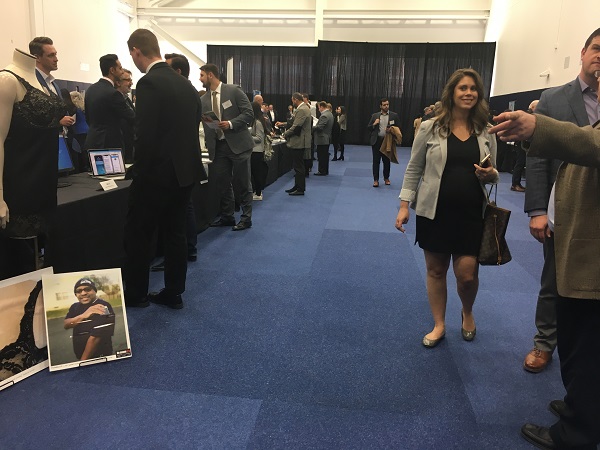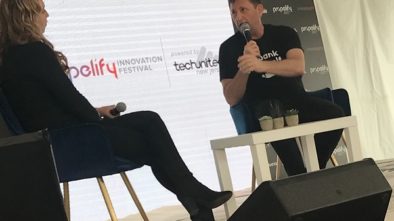Venture Conference Attendees Answer the Question: What’s the Hardest Thing about Raising Money?
The New Jersey Tech Council held its 22nd annual Venture Conference
on April 11 at NJIT, in Newark. The event featured pitches from nearly 50
startups from New Jersey and nearby states. Many of them also had tables in the
conference exhibition hall. We interviewed some of the founders about the hardest
challenges they faced in raising money. Here is what they had to say.
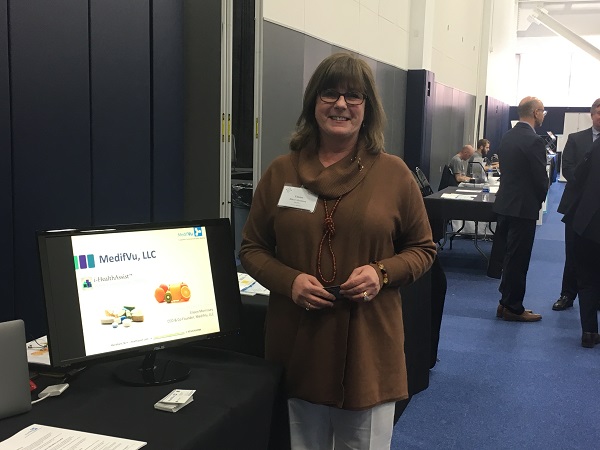
Eileen Morrissey, Founder and CEO of MedifVu (Mendham)
The company: MedifVu is digital healthcare application that helps consumers prioritize their treatment options based on their preferences and their own drug interactions. This application thus reduces the number of drug interactions patients get. Drug interactions cost a total of $30 billion a year nationwide.
The hardest thing about raising money: “I think that some of the challenges involve connecting with the right investor who is interested in your particular problem or technology, and then gaining a level of trust. You also have to be able to explain the details and get them as excited as you are about it.”

Jessica Gaffney, Founder and CEO of Wavework Concierge (Totowa)
The company: With a 20-year background in sports and entertainment hospitality, Gaffney created a solution that enables special sports teams to modernize their premium center experience, with a one-stop hub software solution providing every tool they will need.
The hardest thing about raising money: “The hardest thing about raising money is finding investors who are knowledgeable about my niche, not just social platforms, but the sports industry, specifically. There is a real problem that we are solving, but it’s hard to find a connection.”
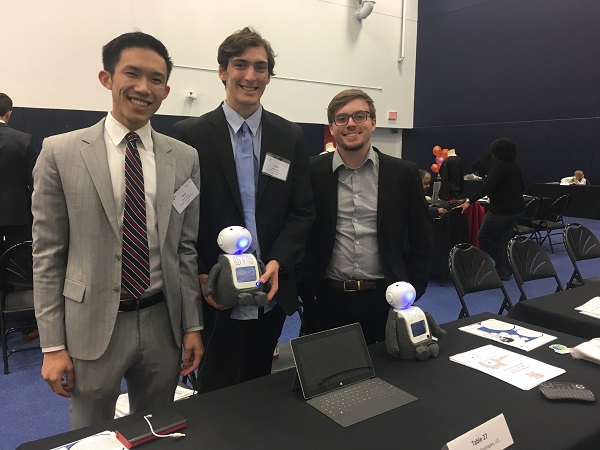
Ryan Chiu, Cofounder and CFO of MARCo Technologies (Monroe)
The company: MARCo Technologies’ mission is to introduce a line of cost-effective, therapeutic robotic companions to assist those suffering from mental illness.
The hardest thing about raising money: “From my perspective, since my partner and I are students, the hardest part is knowing how much to ask for. Our company doesn’t have any revenue. We’re not sure how to assess ourselves.”
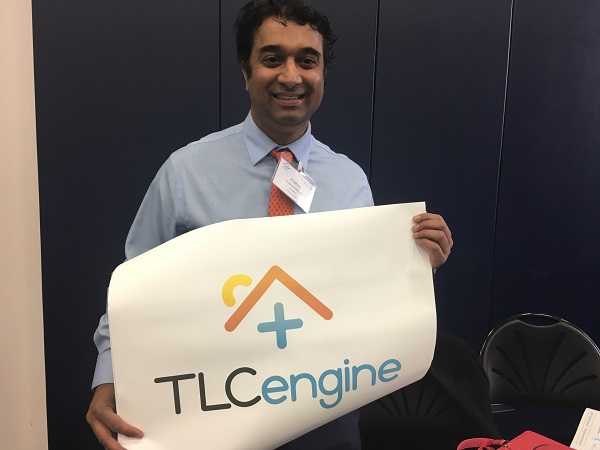
Krishna Malyala, Cofounder and CEO of TLCengine (Piscataway)
The company: “Whenever you are buying a home, you have so many hidden costs beyond the mortgage, title and insurance. Everyone ties their anchor to the price of the home. What they really want to know is the monthly payment. If you can sit there and figure out all your monthly costs to live in the house, you will make a faster, better buying decision. “
The hardest thing about raising money: “Having a great story and great traction will really help us raise capital.” Malyala added that he had been bootstrapping so far, and was just now embarking on fundraising.

Alexander Kane, Founder and CEO, Sporttrade (Philadelphia)
The company: “We’ve built a peer-to-peer betting platform that effectively cuts out the bookie from the betting experience. Sports betting is poised to become a $150 billion industry in the next four years. The problem is that current products haven’t really iterated in the last 30 years. We are getting rid of the bookie, and so the fees will come down.” Sporttrade is looking to enter the New Jersey market.
The hardest thing about raising money: “For us, it’s regulatory uncertainty. I think sports betting is a really new space. There are a lot of venture partners that want to get involved, but don’t know enough about the space. Most often we find ourselves educating the investors about the space in the first 10 minutes, when we really could use that time in getting to talk about our company and our product.”
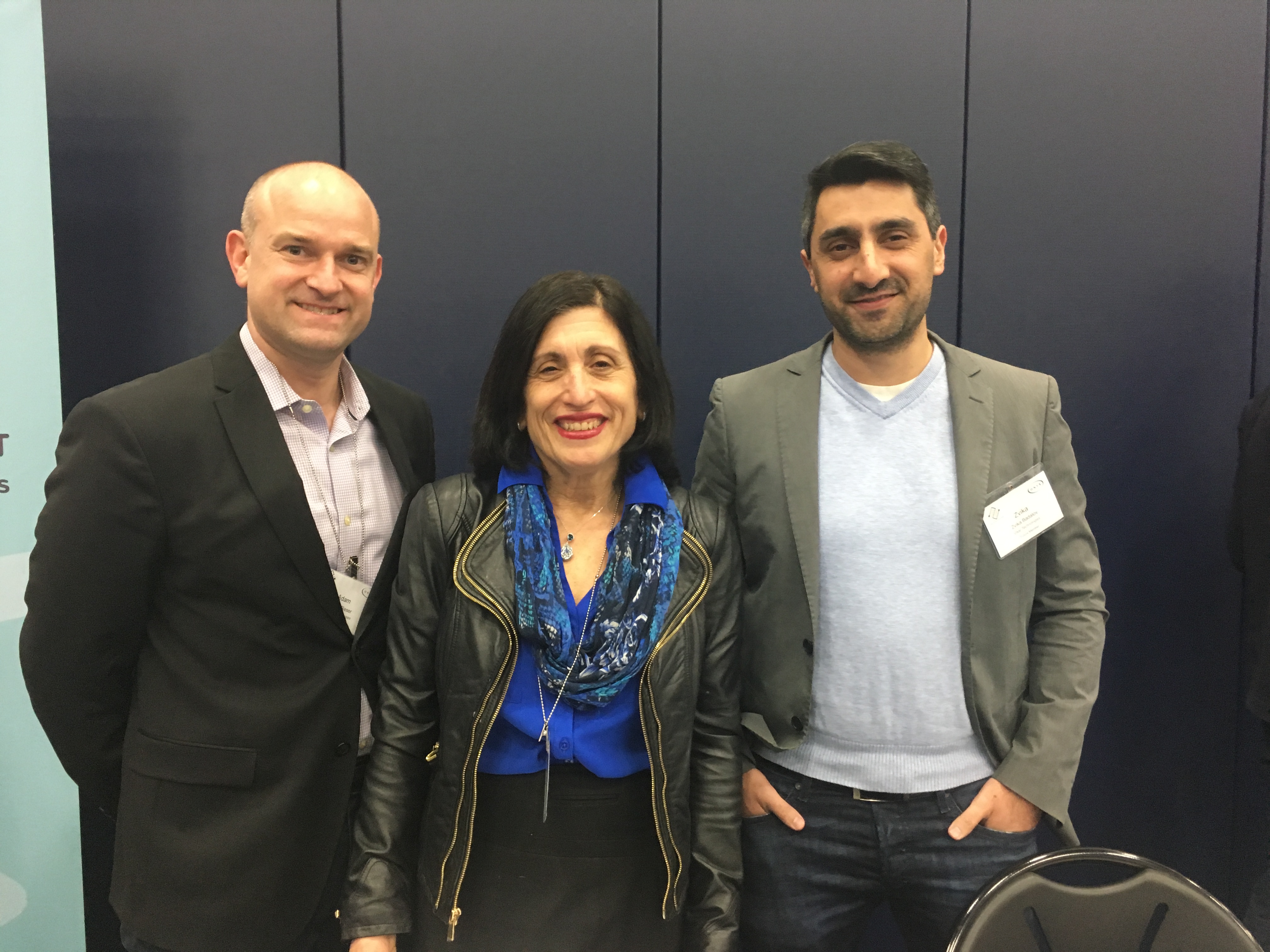
Glenn Bolstad, Cofounder and CEO of Vikar Technologies (Old Bridge), with Nancy Schneier, Cofounder and Chief Revenue Officer, and Zvika Badalov, Cofounder and CTO
The company: “Vikar provides process automation solutions for community and regional banks. We transform paper workers into knowledge workers. We can automate anything that is done manually today.”
The hardest thing about raising money: “It takes a lot of time to raise money, while you are focusing on getting customers and serving customers,” said Bolstad. “Proving the company’s value is the hardest part. Raising money is a function of value added for whomever you can provide value,” Badalov added.
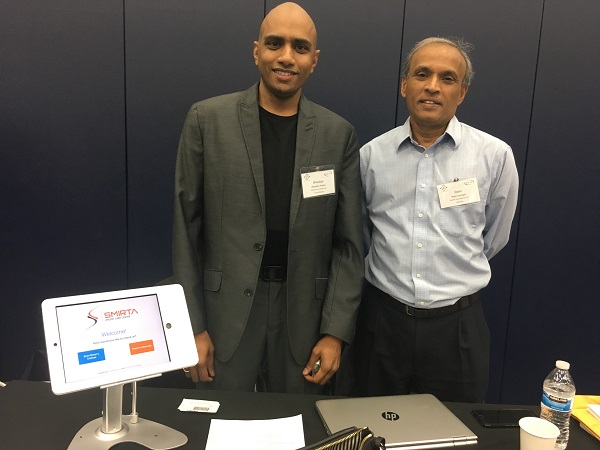
Ram Iyengar, President of Smirta Innovations (Holmdel), with and Bhaskar Anepu, Founder and Vice President of Technology
The company: “We help patients find appropriate care at lower costs. Patients in urgent situations are not sure where to go. They can go to an emergency room, but most emergency rooms make you wait for hours. So, we enable patients to decide where to go based on their symptoms, and we find the best places for them to go.”
The hardest thing about raising money: “The hardest thing is to show we have customer engagement. We have spent a lot of time developing our company, but now that we have a product, we have to show that we have customers for it. Most investors want to see that we have customers. We have to convince investors that there is a large market opportunity for our products.”
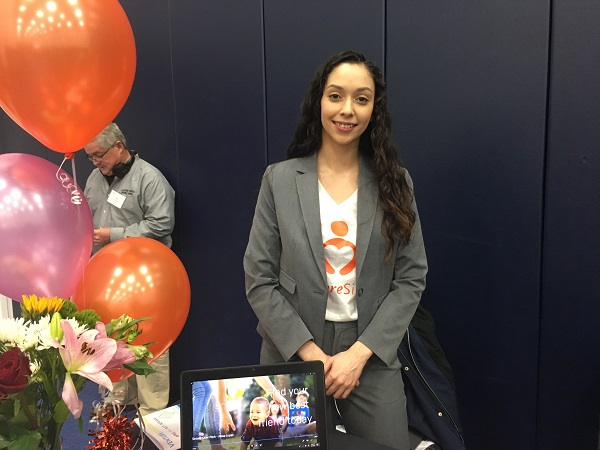
Alissa Lianne Lopez, Founder and CEO of Sincere Sitter ( South Orange)
The company: Sincere Sitter is the care giving app that matches parents with trusted and reliable caregivers through mutual friends, and provides training as well as compatibility matches.
The hardest thing about raising money: “The hardest part of raising money is knowing who you are pitching to. So, I’ve currently been raising money through pitch competitions locally and nationally, and I find that all the judges have different ideas. The unexpected definitely happens, and you never know what their thought processes are in terms of what they prioritize to be something they would invest in. In my experience, as a creator of an app whose target market is women who need to find trusted and reliable care givers, I find that we win more money when there are more women judges and parents on the panel. It all depends on the circumstances, and knowing who you are pitching to. If you do a little homework on what they are interested in, you are better off. If there is an investor who is involved in social and community affairs, I can explain how my app empowers caregivers to develop their education, and develop their careers. There are different angles for everyone. But if they are more technically oriented, I can talk about my proprietary algorithm and the personality data.

